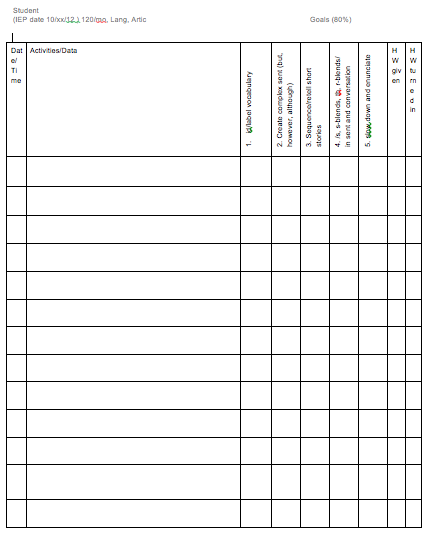How to Prepare for an IEP (A Special Educator’s Guide)

“The IEP is tomorrow. I don’t feel ready at all.”
“What goals are appropriate for my student? There is so much he could benefit from!”
“Parents are bringing an advocate/lawyer/etc. I’m terrified!”
Have you ever uttered these words before? I know I have. Although I cannot count the number of IEPs that I’ve led and attended, I would estimate it to be around 1000. Yep, that would be 100×10.
I don’t love IEPs. I can’t even say that I like them. I do like parts of them: telling a parent how their child has grown in the last year, talking about parent concerns, hearing from teachers. However, the legalese and length of the IEP can be overbearing and exhausting. With a few tips, however, you can help make the process smoother and less intimidating for everyone.
How to prepare for an IEP:
1. Schedule the meeting far in advance.
 I set a reminder to contact the teacher and parent at least a month in advance to set up the meeting. This gives us plenty of time to find a date that works for everyone. Typically, I like to get things over with sooner, rather than later. So I would rather take a date 3 days from my phone call then wait 3.5 weeks until the deadline is imminent. This also helps me to space out IEPs so the busy months are less busy.
I set a reminder to contact the teacher and parent at least a month in advance to set up the meeting. This gives us plenty of time to find a date that works for everyone. Typically, I like to get things over with sooner, rather than later. So I would rather take a date 3 days from my phone call then wait 3.5 weeks until the deadline is imminent. This also helps me to space out IEPs so the busy months are less busy.
2. Get parent input.

As soon as I hang up the telephone with the parent, I prepare my meeting notice. Included in the meeting notice is a parent input form that I encourage all parents fill out. These forms help parents feel involved in the process and better heard. Included on the input form are:
- What are my child’s strengths?
- In what areas do I want my child to grow this year?
- What are my concerns for my child?
When parents have filled these out (or answered the questions by phone), I feel confident that the IEP I am writing is a team effort.
3. Get teacher input.
Immediately after sending out my parent input forms, I email my general education teacher for input on the student in the classroom. Teachers are very busy, so I send these out early and then email them reminders a week later to complete the form.

My favorite forms to use are the Common Core Teacher Input Forms. I send the appropriate grade-level standards to get an idea of how their disability impacts them in the classroom, as well as an input form for subjective and objective data. These can be filled out on the computer and emailed back or printed out and completed by hand. Sometimes I provide teachers with both options to do whatever is easiest for them.
Teacher input is crucial for informing the team on present levels and deciding on goal areas to focus on during the next IEP cycle.
4. Use informal assessments to monitor progress and determine new goals.

Before most of my IEPs, I spend 20 minutes informally assessing a student to compare their progress to earlier in the year. I can also use the data to determine appropriate goals for the next year. Sometimes a student has made progress on their goal but is still struggling with a grade-appropriate skill. I may choose to continue working on that goal and have data to back up that decision.
I usually progress monitor and determine areas of need with the Language Informal Assessment, Social Language Informal Assessment, or Articulation Informal Assessment. I like these tools because they are relatively quick to administer, based on developmental norms or common core standards, and have different versions for pre/post-test measures. Other options for collecting student data before an IEP include: SLP Tool Kit, Language Progress Monitoring Tool, or many others.
5. Complete the IEP paperwork early.
 My personal goal is to complete writing an IEP one week before the due date and print it out at least 24 hours before the meeting. This gives the rest of the team the opportunity they need to get into the document and input their present levels and goals. If a parent requires a copy of the IEP in advance, I am ready to go. It also prevents the hyperventilating panic attacks of the internet being down or printers not working on the afternoon of the meeting.
My personal goal is to complete writing an IEP one week before the due date and print it out at least 24 hours before the meeting. This gives the rest of the team the opportunity they need to get into the document and input their present levels and goals. If a parent requires a copy of the IEP in advance, I am ready to go. It also prevents the hyperventilating panic attacks of the internet being down or printers not working on the afternoon of the meeting.
I cannot guarantee that these tips will solve all of your IEP woes, but I can promise that you will feel much more confident and calmer.
If you want to get serious about getting organized, check out my course:
helping school-SLPs take back their weekends!








I love the parental input part. So many of my parents don’t really participate so this is a way to get more information from them. I think I would try to call them and visit with them to get the information.
I feel most comfortable when I have a draft prepared ahead of time.